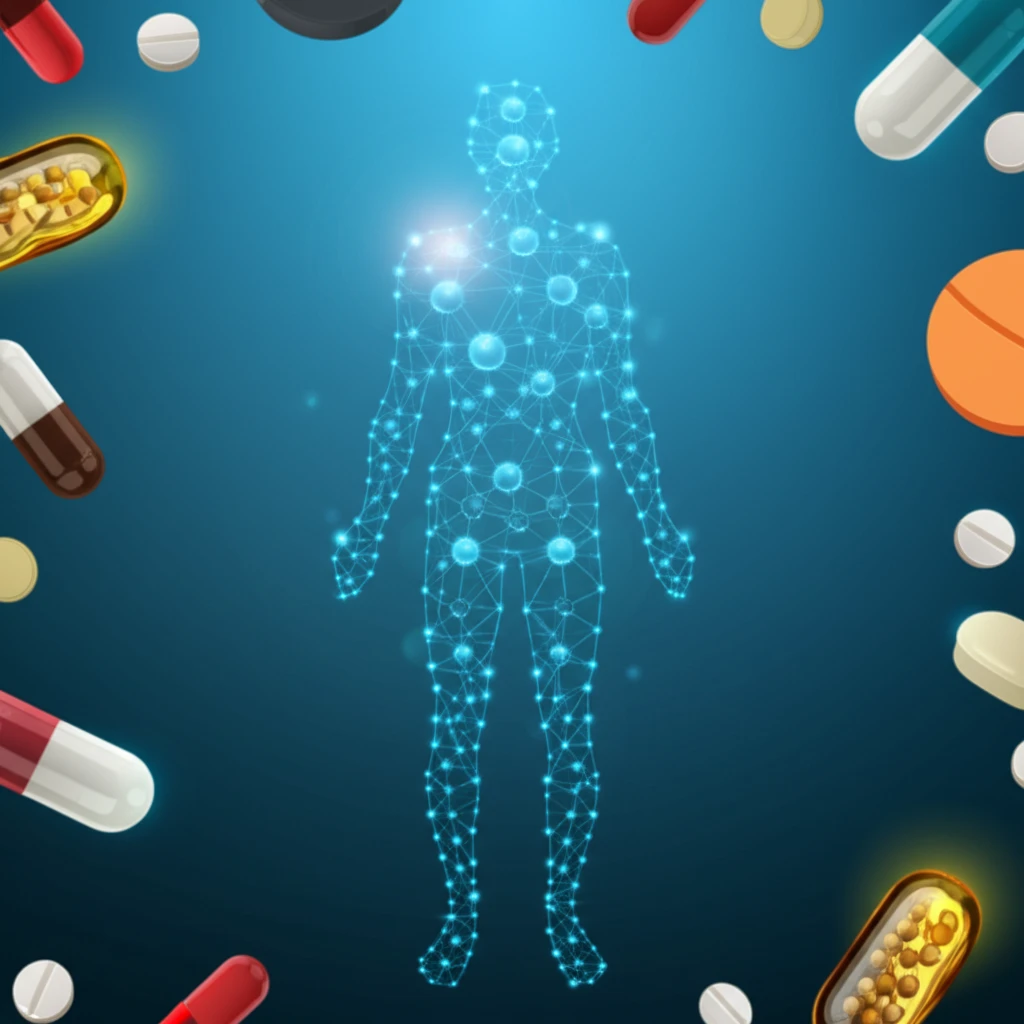
Unlock the Power of Pharmacology: How Understanding Drugs Can Transform Your Health
"Delve into the fascinating world of pharmacology and discover how medications interact with your body to improve your well-being."
Have you ever wondered how that tiny pill you swallow can have such a profound effect on your body? Pharmacology, the science of how drugs interact with living systems, holds the answers. It’s a field that touches all of our lives, whether we're taking prescription medications, over-the-counter remedies, or even natural supplements.
Understanding the basics of pharmacology can empower you to make informed decisions about your health. It's not just about knowing what a drug does, but also how it does it, what side effects to watch out for, and how it interacts with other substances you might be taking. This knowledge is crucial for optimizing treatment outcomes and minimizing potential risks.
This article will guide you through the key concepts of pharmacology in an accessible and engaging way. We'll break down complex scientific principles into easy-to-understand language, providing you with practical insights that you can apply to your own health and wellness journey. Get ready to unlock the power of pharmacology and take control of your health!
Decoding Drug Actions: How Medications Work in Your Body

At its heart, pharmacology is about understanding the intricate dance between drugs and the body. Drugs, also known as medications or pharmaceuticals, are chemical substances that interact with specific targets in the body to produce a therapeutic effect. These targets are often proteins, such as receptors, enzymes, or ion channels, that play crucial roles in cellular function.
- Absorption: The drug enters your bloodstream from the site of administration (e.g., mouth, injection).
- Distribution: The drug travels through your bloodstream to various parts of your body.
- Metabolism: The drug is broken down by enzymes, primarily in the liver, into metabolites.
- Excretion: The drug and its metabolites are eliminated from your body, usually through the kidneys or liver.
Empowering Your Health Through Pharmacology
Pharmacology is more than just a scientific discipline; it's a powerful tool for understanding and managing your health. By grasping the fundamental principles of how drugs interact with your body, you can become an active participant in your healthcare decisions. Remember to always consult with your healthcare provider before starting or stopping any medication, and use your newfound knowledge to ask informed questions and advocate for your well-being. Your health is your most valuable asset, and pharmacology can help you protect and enhance it.
